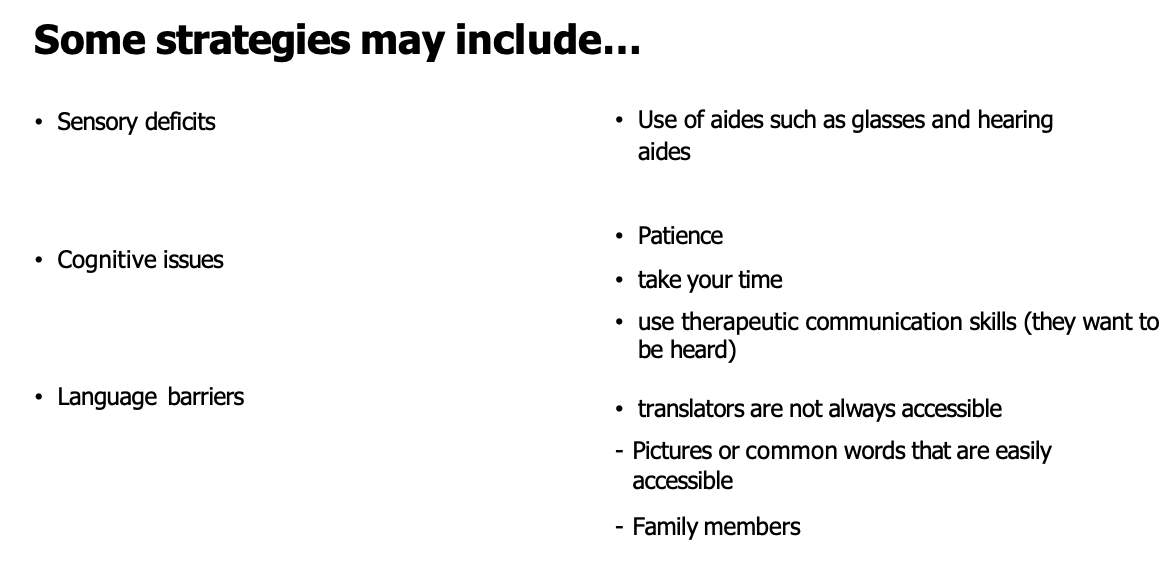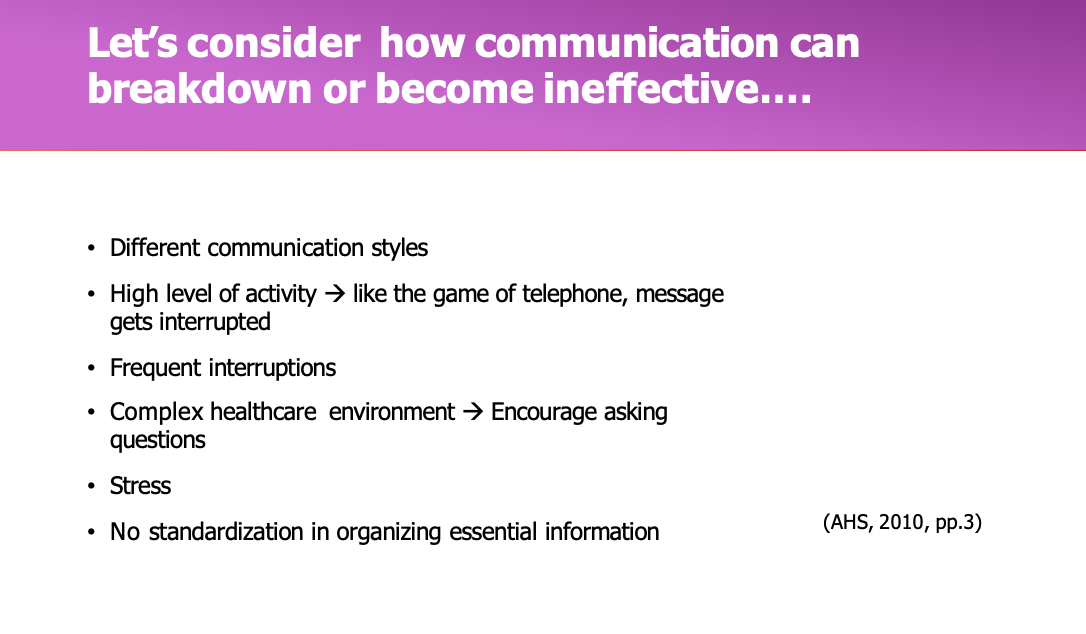221: Communication, Documentation & Reporting
1/22
There's no tags or description
Looks like no tags are added yet.
Name | Mastery | Learn | Test | Matching | Spaced |
|---|
No study sessions yet.
23 Terms
What is communication used for with patients?
For them to express their wants and needs
relationship is in the center of the fundamental care network and without communcation, you can’t build a relationship
includes verbal, non-verbal and written
What are 5 ways to communicate
reading
speaking
listening
writing
non-verbal signs (upset, ignoring nurse, interested, facial cues)
This includes things such as reading charts, documentations, SBAR, history , plan of care etc.
Documentation is__________
any written or electronically generated information about a client that describes the care or services provided to that client… an essential part of nursing practice
Why do we document?
documentation asap keeps the information fresh in mind, makes charting accurate, clear and objective
documentation promotes effective communication, safe patient care, continuity of care rather than starting over, record of critical thinking, describes quality of care and standards of practice
How can documentation be used as legal evidence?
It serves as a legal document providing evidence of care
Where do we documment?
formal charts
Elec records like connect care
doctor’s boards
Kardex
**Doctor’s boards and Kardex are informal à not formal legal forms of documentation
What are the CRNA standards for documentation??
Accountability
communication and safe provision of care
security
What is standard one of CRNA for documentation?
accountability
What is standard two of CRNA for documentation?
communication and safe provision of care
What is standard three of CRNA for documentation?
security
Guidelines for documentation include?
recording facts
correcting errors promptly, so instead of deleting something, we strike it out and then sign initials
avoid generalizations
chart only for yourself!!!
Never chart something before it happens
use only approved abbreviations
For starting documentations, what do we always begin with?
Always begin with date, time (24 hr clock)
For ending documentations, what do we always end with?
end with name and designation (C.J. RN)
What does SOAP stand for?
subjective
objective
assessment
plan
what does PIE stand for?
Problem
Intervention
Evaluation
What does DAR stand for?
Data
Action
Response
What is SBAR used for?
situation background assessment recommendations
used when we have a concern or sudden change to report to doctor or hand-off
What does SBAR consist of?
•Situation- who is calling, why and situation- or major concern. Urgency & Hook
•Background- pertinent information, events leading up
•Assessment- what do I think is the problem? Assessment of the situation, what we think is going on
•Recommendation (or request)-what do I recommend- what needs to be done. (could be as simple as asking doctor to re-assess)
What is the health information act (HIA)
Canadian “HIPPA”
provincial legislation including expectations for the collection, use, disclosure and security of health information
- protects privacy and confidentiality of individuals and health information
→Requires whoever is performing or works for agency, understand the privacy requirements that apply to practices and we take appropriate measures to safeguard information
How do communication challenges arise ?
sensory deficits —> vision and hearing
cognitive deficits —> dementia & aphasia
Language barriers —> translators aren’t readily available

What are some strategies to address each challenging area of communication?
Sensory deficits ==> use aides such as glasses and hearing aides
Cognitive issues ==> patience and taking our time, using therapeutic communication and making them feel heard
Language barriers ==> if translators are unavailable, using pictures or common words that are easily accessible and talking to family members
What are the CRNA standards about social media?
Doesn’t breach confidentiality
Has no derogatory comments about people they work with or agency they work with
No comments about patients
Careful about posting personal views
Giving information should be evidence based and just don’t post health advice online
Let people go and look things up for themselves
what are some barriers to good communication?
•Different communication styles
•High level of activity —> like the game of telephone, message gets interrupted
•Frequent interruptions
•Complex healthcare environment —> Encourage asking questions
•Stress
•No standardization in organizing essential information
